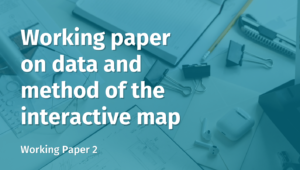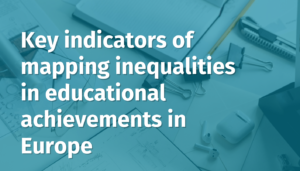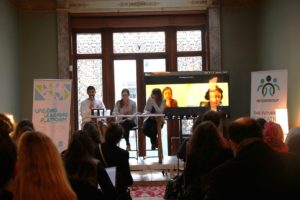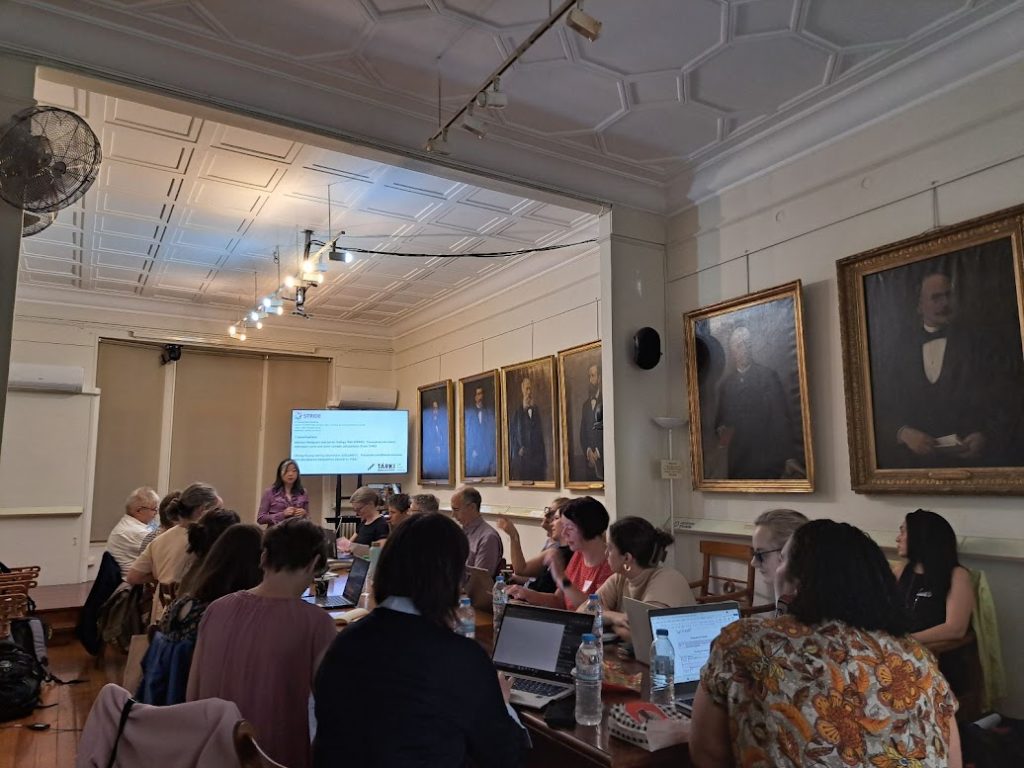On Tuesday, February 25, the STRIDE team in Denmark held a significant meeting to discuss the importance of educational equity and the role of STRIDE in this with their National Stakeholder Group (NSG). Participants from VIA University College included Lillian Buus, Marianne Georgsen, Ida Gran Andersen, and Simon Nørgaard Iversen. The NSG attendees comprised a Chief Consultant from the Administration for Education and Quality at the Ministry of Children and Education, a Special Consultant from the Statistical and Analytical Department at the Ministry of Higher Education and Science, a Consultant from Aarhus Municipality’s Department for Children and Youth, the Head of International Education and Youth Engagement from Save the Children, and a Senior Researcher from University College Absalon specializing in national policies on children and education.
The VIA team introduced VIA University College as a leading research and educational institution, emphasizing its commitment to equity in education and the importance of research in informing policy development. They highlighted STRIDE’s goal to contribute to policy development through comprehensive analyses of European educational reforms. An overview of the STRIDE consortium members, the project’s internal structure, and its work packages was provided to give a holistic understanding of the project’s scope and objectives.
Policy analysis and meta-analysis in Europe
NSG members can contribute to certain goals of the project by offering insights from their expertise in the field. For example, they were asked for their insights into STRIDE’s communication strategy and the development of the toolbox. The VIA team presented the aims, methodology, and preliminary results of Work Package 2 (WP2). This part of STRIDE’s research focuses on delivering an overview of significant national and regional education reforms aimed at improving inequalities in education and learning outcomes and to promote equity and inclusion over the past 25 years in Europe, as well as mapping and meta-analysing longitudinal studies and evaluations following the key educational reforms.
This sparked conversations about the opportunities and challenges of this Work Package’s goal, highlighting the juxtaposition between a comparative approach across all EU+ countries and the need for detailed analysis on the national level. In this context, they discussed the limitations of conducting comparative research across EU+ countries, particularly concerning the available databases. Additionally, they explored the definitions of reforms, noting how small reforms or initiatives can have a significant impact, while other reforms may lead to unintended consequences.
Identify effective policy initiatives and interventions
Following this, the conversation continued with a presentation of the aims and methodology of Work Package 5. The goal for this WP is to identify effective policy initiatives that address inequalities in learning outcomes over time through analysis of longitudinal data from five European countries. The VIA team will primarily focus on a reform that mandates nationwide language tests for all students when they start school (typically age 6). The methodology will include interviews, media analysis, and an interrupted time series analysis of population-wide registry data, focusing on gender, socioeconomic background, and ethnicity. The following discussion centered on how changes in inequality and equality often result from various efforts, not necessarily limited to the educational system. They also emphasized the importance of how a reform is implemented at the local level by practitioners (teachers and pedagogues) for its success.
Educational inequality in Denmark
Lastly, during the meeting they addressed the current main problems concerning inequality in Denmark and how the educational system can contribute to mitigating these inequalities. Enhancing the quality of special education and participation for children with special needs was emphasized during the conversation. Inequalities in higher education admissions in Denmark were also addressed. Particularly, the two different ways of admission: “Kvote 1” (admission by grade) and “Kvote 2” (admission on the basis of an overall assessment: e.g. grades, other qualifications etc.). Admission type 2 (Kvote 2) had a bias against the disadvantaged. Additionally, it was recognised that many initiatives target the middle class, potentially neglecting those most in need. Furthermore, the participants acknowledged that inequality between schools in Denmark is relatively small, but most educational inequalities are produced outside the school context.
The meeting underscored the importance of collaborative efforts in advancing educational equity and the role of research in shaping effective policies. The discussions and insights shared will guide the STRIDE consortium in its ongoing work to improve educational outcomes across Europe.












